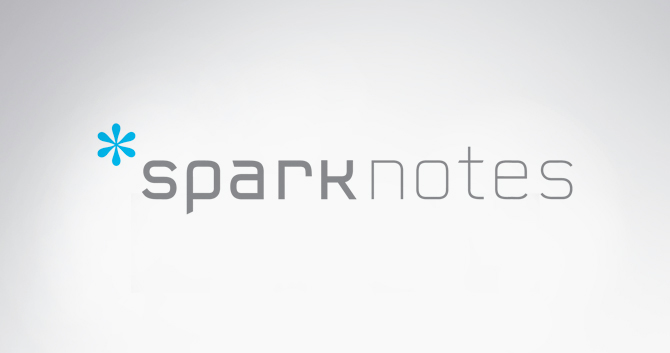The Age of Sparknotes
April 22, 2015
In an age when schoolwork is done predominantly behind the computer screen, many students have come to celebrate SparkNotes as the perfect escape from a long night’s read of force-fed literature. Although utilizing the popular online resource solely as a supplemental tool is all well and good, complete dependency on it can only result in a situation in which students cannot withdraw without falling behind. Frankly, sites like SparkNotes are virtually drugs.
It seems as if every student (including yours truly) has succumbed to substituting SparkNotes and other study guide websites for actually reading, but in most cases, who can blame them for struggling with comprehension? Laziness undoubtedly plays a part but the inability to independently decipher centuries-old texts plays a larger one; when left to one’s own deficient devices, the average high school student is simply not fully Shakespeare-literate.
This pervasive abuse of SparkNotes has caused concerns among English teachers, who in turn have enacted extra measures to counteract it. Is it cheating? Hardly. But when students come to rely on the resource completely, they are only cheating themselves of the full experience of literary works and learning—this, teachers seem to understand. However, relying on unreasonably specific quizzes and exams to ensure that students don’t continue doing so is a misguided attempt backed by a false sense of efficacy. For teachers with students that depend on SparkNotes (presumably every English teacher on campus), dangling the weight of a grade over their heads will not work. Sure, such assessments prompt most students to crack open their books, but are they truly understanding the content? Probably not.
“I have read Hamlet more than a hundred times, and there are still lines in the play that I do not understand without ‘cheating’ and looking at the translation,” Kelly Gallagher, a leading literacy education consultant to teachers around the world, wrote in a blog post about his success with integrating SparkNotes into his high school English classrooms in Anaheim.
Obviously, it would be futile to prevent students from using SparkNotes, but this is exactly what many teachers seem to be doing. Even in Honors and AP classes, instructors need to realize that dishing out more tedious assignments and assessments in order to force students out of the habit is not the answer, but rather actively bolstering the understanding of the material. To some extent, SparkNotes abuse is being addressed. Just not in the right way.



